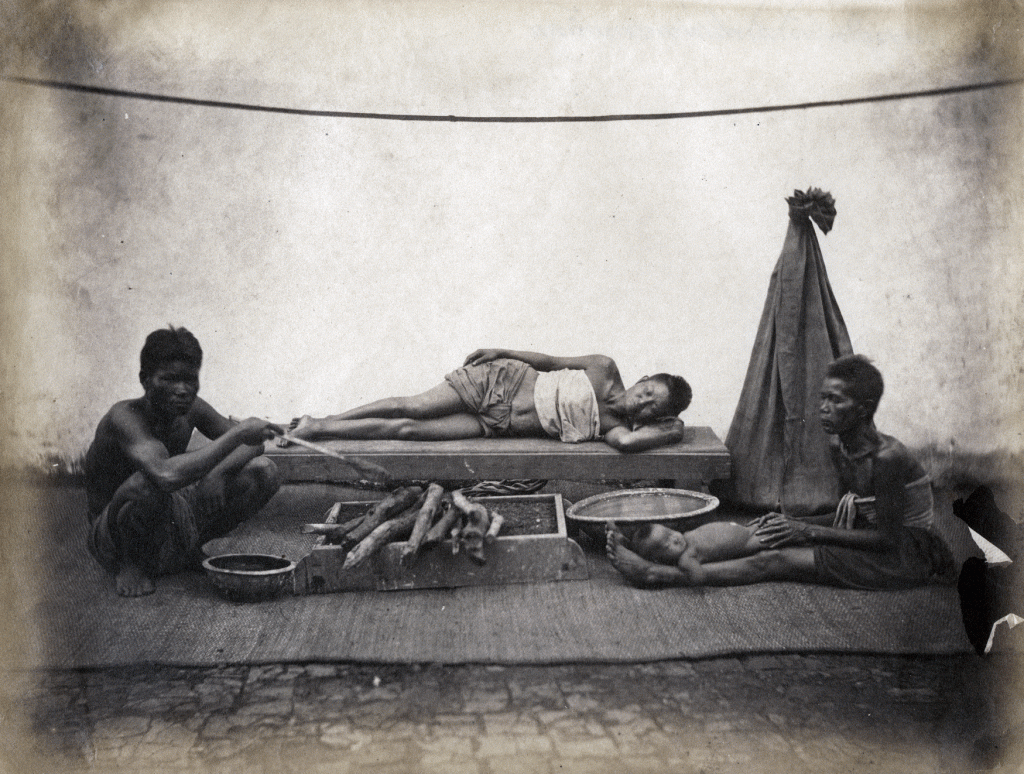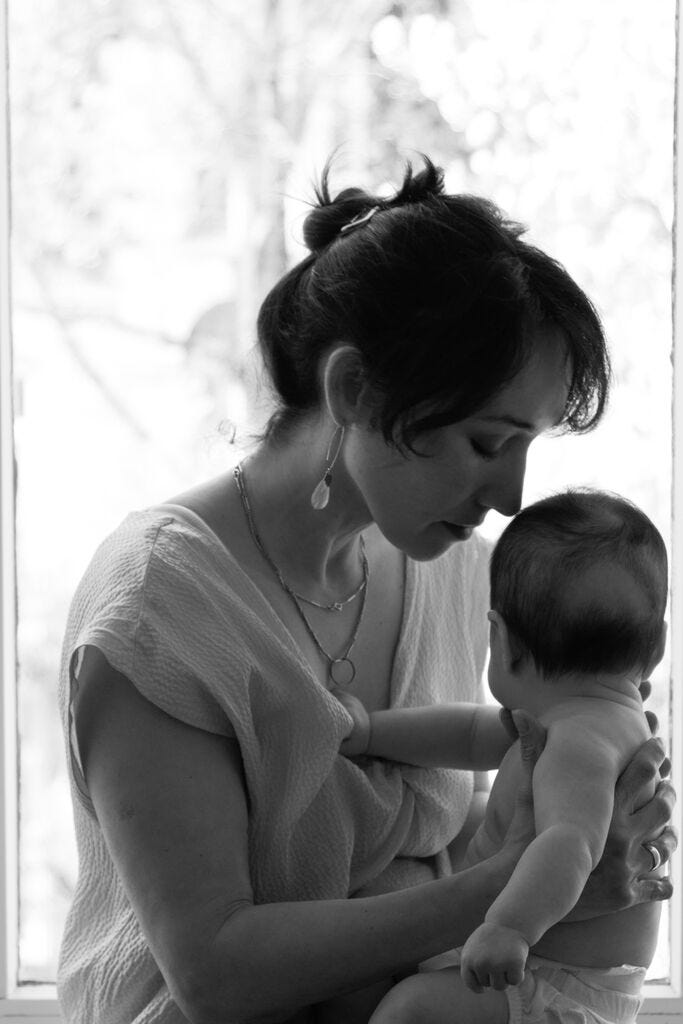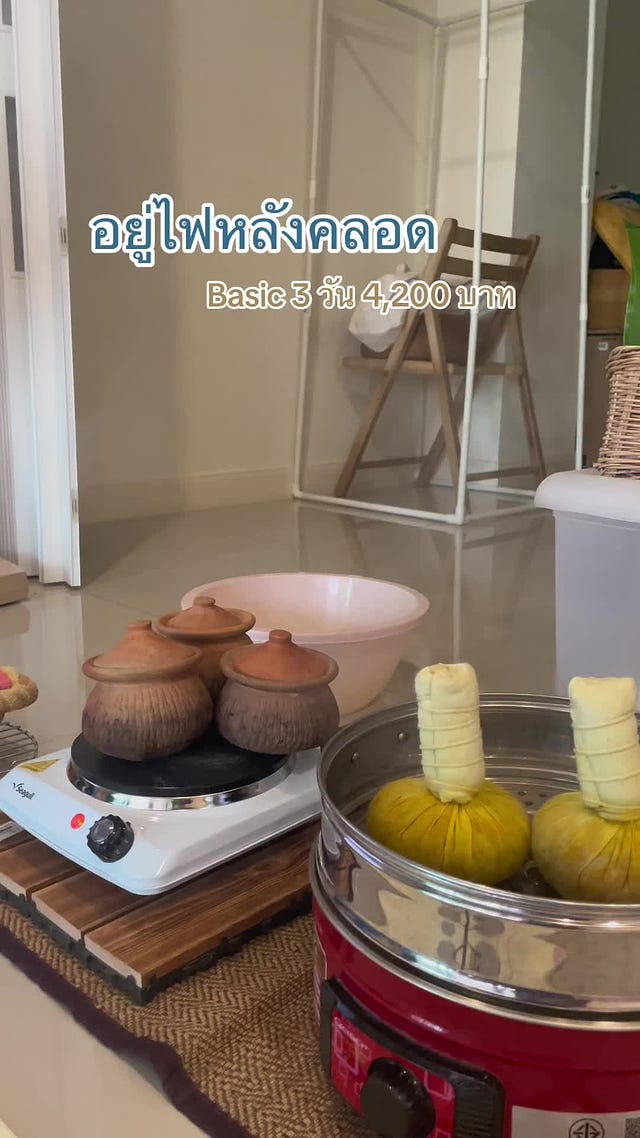Postpartum Lessons from Thailand’s Warm Embrace
Interview with Iasnaia Maximo, a Paramana Doula based in Bangkok, Thailand
It’s funny how often we overlook the importance of community in motherhood, especially in cultures that prioritize individualism. As someone who’s navigated the postpartum period four times without the cushion of deeply ingrained cultural traditions, I’ve often wondered what it would be like to experience the kind of communal care that’s a given in places like Thailand. In the United States, my postpartum experiences were largely shaped by a mix of medical advice and the occasional well-meaning tip from family, but there was no formalized system of support, no prescribed rituals to guide me through those raw early weeks. While in New Zealand, I did have the in-home care from my midwife, I still lacked the community aspect—the village that I think we all need and instinctually crave.
In cultures where the village still plays a central role, postpartum care is not just a personal journey; it's a collective effort. This sense of community, this wrapping of the new mother in layers of warmth and support, is something that I've come to see as essential, not just nice to have. It makes me reflect on what we might be missing in more individualistic societies and how we can learn from places where motherhood is still seen as a communal experience.
This is why, when I first heard about the Thai practice of "Yu Fai," I was intrigued. The idea that an entire community rallies around a new mother, not just to coo over the baby, but to care for her physical and emotional well-being, felt both foreign and fascinating to me. I couldn’t help but think about how different my own postpartum periods might have been if I’d had such a support system—if, instead of being left to figure things out on my own, I’d been enveloped in warmth, both literally and figuratively.
But then again, it’s easy to romanticize what we don’t have. The reality of "Yu Fai" and postpartum care in Thailand, as I learned from my conversation with Iasnaia Maximo, also known as Yaz, a Paramana Doula, hypnobirthing educator, and advocate in Bangkok, is complex. While there are beautiful traditions that prioritize the mother's recovery, there are also significant gaps in formal support that leave many women to fend for themselves once they leave the hospital.
In our conversation, Yaz and I discuss the nuances of postpartum care in Thailand—the blend of old and new, the strengths of community support, and the challenges that come with modernization. It’s a story that’s both inspiring and sobering, one that made me reflect on the ways we care for new mothers, wherever we are in the world.
The Warm Embrace of Yu Fai: More Than Just Heat
In Thailand, the postpartum period is often marked by a practice known as "Yu Fai," (อยู่ไฟ) – literary meaning ‘stay on fire’. It is a traditional method of caring for new mothers that has been passed down through generations. This practice focuses on keeping the mother warm and supporting her recovery through specific rituals, including breast massages, vaginal steaming, and the use of warming foods.
"Yu Fai is not just about physical warmth but also about creating a nurturing environment for the mother," Yaz explained during our interview. "In Thai culture, warmth is considered essential for healing after childbirth. The belief is that keeping the mother warm helps to balance her body and speed up recovery. This includes everything from warm baths to drinking hot soups."
One particularly interesting aspect of Thai postpartum care is the use of breast massages. "In Thailand, it’s common for a breast masseuse to visit new mothers at home," Yaz shared. "This practice is believed to help with milk flow and prevent blockages, but it’s not without its challenges. If done too aggressively, it can lead to discomfort or even oversupply issues." The intention behind these practices is deeply rooted in the cultural belief that a mother’s well-being is crucial for her baby’s health.
 Tiktok failed to load.
Tiktok failed to load.Enable 3rd party cookies or use another browser
Keep reading with a 7-day free trial
Subscribe to Atlas of Motherhood: An Atlas of Global Maternal Care to keep reading this post and get 7 days of free access to the full post archives.






